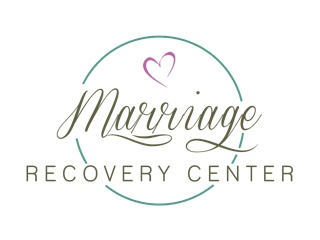6 Things To Do When the Fighting Just Won't Stop

I spent the last three days with a couple who were exhausted by the time they arrived for their Marriage Intensive.
“We move from one fight to another,” the man said. “I’m exhausted all the time. Sharon seems to be able to have conflict day in and day out, but I can stand it.”
Sharon, his wife of ten years, shook her head vigorously.
“Are you kidding? I hate our fighting,” she said. “I feel like I need a vacation all the time.”
As if there is not enough panic and negative press bombarding us from the outside, the last thing we need is tension and anxiety meeting us at the door when we arrive home to our castle.
Yet, for as much as we’d like to think, “My home is my castle,” moat firmly established to keep away intruders, many of us live with conflict inside the castle. Do you arrive home, securing the drawbridge, only to be met by your mate, poised for battle?
I shared with this couple that marriage was intended to be a safe haven, relatively free from conflict. While they would naturally experience periodic disruptions in their loving relationship, continual fighting was not anything like what God intended for man and wife.
In fact, I repeatedly tell couples their marriage should be like a series of bridges spanning from intimacy and warmth to more intimacy and warmth, interspersed with small islands of conflict. Too many couples have it reversed: long bridge spans of conflict interrupted by the small islands of intimacy. Relationships cannot survive or thrive under the weight of such conflict and crises—there must be long periods of warmth, trust and stability for any relationship to thrive.
Consider a few words from Scripture on the topic:
- “The tongue of the wise commends knowledge, but the mouth of the fool gushes folly.” (Proverbs 15: 2)
- “The heart of the righteous weighs its answers, but the mouth of the wicked gushes evil.” (Proverbs 13: 28)
- “But I tell you that men will have to give an account on the day of judgment for every careless word they have spoken. For by your words you will be condemned.” (Matthew 12: 37)
These are strong words of caution to all of us. Our words have the power not only to tear down a marriage, but to destroy a person—hence God’s strong warnings on how we conduct ourselves and the words we use.
“I’m very glad you’re exhausted,” I told this couple. “Not because I want you to be tired, but because I want your ‘chaos detector’ to note that things are not the way they should be.” I went on to tell this couples we were not created to tear down, but to build up. We weren’t created to worry about what we’re going to fight about today, but to live in the sweet fellowship of intimacy and safety with our mate. But, what to do? Here are a few crisis-ending strategies:
1. Decide that living in crisis is not normal, nor is it how you’re going to live. The beginning steps to change always begin with uneasiness, tension and doubt about the next course of action. Recognize that to be normal, and understand that the following steps won’t be easy, but will take you to a healthier place of relating.
2. Practice "conflict containment’" where you contain conflict to occur only at given times in prescribed ways. Healthy couples know they need a rest from conflict and must learn to put issues away until they can talk about them in a healthy way.
3. Insist that doing what you’ve always done is not good enough. Enlist you and your mate in the process of change. Brainstorm with each other about radically changing the way you relate to each other. Speak softly, letting the other know you are ready to have change begin with YOU.
4. Create a new plan. Desire without specific plans is sure to fail. Sit with your mate and outline the kind of relationship you wish to have: healthy conflict; resolution of problems; peaceful living; loving encounters; adventure; fun and spontaneity—for starters.
These are general goals. A more specific action plan includes:
- Admitting you’re in a crisis, and that involves “crisis thinking”;
- Not saying anything hurtful to your mate;
- Practice "conflict containment."
- Putting “hot” issues aside until with a professional;
- Noticing and commenting on small positive changes.
5. With the assistance of a trained professional, learn how to have healthy interactions where problems are solved. You cannot do this work alone. Find the best professional you can afford and get to work. Learn the skills of healthy communication, eliminating defensiveness, active listening, sharing feelings without judging, negotiation.
6. Stick with it. These are skills you must learn and then practice, over and over again. There will be backsliding—expect it. Forgive and move forward. Learning these tools won’t come easy—don’t expect it. But, step-by-step, you can move from the land of perpetual crises to peaceful relating.
Fighting is a very debilitating process. If you are struggling with breaking free ongoing patterns of conflict, please reach out for help. I’d like to hear from you. Please read more about this in my latest book, Never Fight Again, Guaranteed and explore more about my Marriage Intensives at www.MarriageRecoveryCenter.com. Send comments to me at drdavid@marriagerecoverycenter.com

Originally published September 08, 2015.





